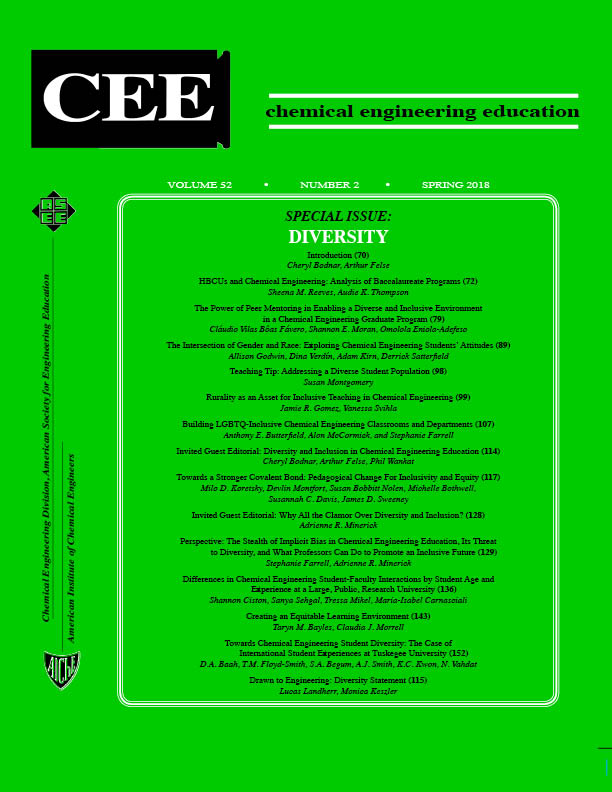Creating an Equitable Learning Environment
Abstract
To better understand the components that create an equitable learning environment, we have analyzed a number of highly successful programs that we developed and conducted targeting K-12 students, their teachers, and university students. We identified four criteria experienced by the student that are essential for his or her recruitment, participation and completion. These include (1) an inclusive and welcoming environment, (2) an experience of normalcy that minimizes conflicts to the student’s identity, (3) a sense of empowerment and control in his or her learning, and (4) relevance to his or her life, culture, and community. Formal and informal educational programs have been analyzed and have been found to have these four elements, which is supported by both literature and three diverse focus groups. Having educators and administrators create an equitable learning environment benefits all of our students and is supported by evidence in the enrollment in the chemical engineering program at a research university that more than quadrupled, during which the female population ranged between 25 to 48% female and the under-represented minority (URM) students ranged between 20% to 47%.


